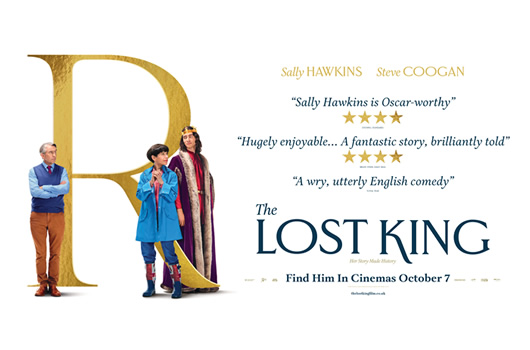Following eight years of research and development by filmmakers Baby Cow, BBC Films and Pathé, The Lost King film (dir. Sir Stephen Frears) celebrated its world premiere at the Toronto International Film Festival on 9 September 2022. The European premiere followed in London on 26 September, with the UK and Eire staging the film’s first cinematic release on 7 October 2022 to coincide with the 10th anniversary of the discovery. Garnering plaudits as a heart-warming and uplifting underdog story that everyone can enjoy, exit polls revealed 84% of the audience rated the film excellent or very good and 69% would definitely recommend it to friends and family. The film achieved an audience score of 92% (Rotten Tomatoes).
The Lost King tells Philippa Langley’s remarkable story: her discovery of the lost grave of King Richard III of England (1452-1485). The filmmakers utilised Philippa’s books, TV documentary (Richard III: The King in the Car Park), original archive, and materials including eye witness testimony to bring her story to life on the big screen. For more see here, here and here.
Philippa said: “I can’t thank everyone enough for all the amazing messages you’ve sent me and the family, and how my story has helped and inspired others with the challenges they too are facing in their own lives – and how many of you have seen the film two or three times! My journey to discover the king’s grave in the northern end of the Social Services car park in Leicester began in 2004, eight years before the tarmac was finally cut. Extraordinarily, this was the same time the film took to develop.”
The Lost King reunites the Oscar-nominated and BAFTA-winning creative team behind the smash hit Philomena (2013) and stars Sally Hawkins as Philippa Langley and Steve Coogan as John Langley, with Harry Lloyd as King Richard III.
The Lost King – find him in cinemas
Synopsis:
In 2012, having been lost for over 500 years, the remains of King Richard III were discovered beneath a car park in Leicester. The search had been orchestrated by an amateur historian, Philippa Langley, whose unrelenting research had been met with incomprehension by her friends and family and with scepticism by experts and academics. THE LOST KING is the life-affirming true story of a woman who refused to be ignored and who took on the country's most eminent historians, forcing them to think again about one of the most controversial kings in England's history.
Reviews:
“One of [Hawkins’] greatest roles…a historical detective story that carries the kick of a true-life DA VINCI CODE” Variety
“Hugely enjoyable… a fantastic story, brilliantly told” Brian Viner - Daily Mail ★★★★
“This is the essence of Frears…one lovely wisp of a movie…a spiritual successor to his smash hit PHILOMENA”
“a charming true story”
“Hawkins portrayal is never less than brilliantly human.” Vanity Fair
“Sally Hawkins is Oscar-worthy” Evening Standard ★★★★
“A wry, utterly British comedy” Total Film
“wonderfully compelling and delightfully charming…Sally Hawkins at her very best”
“a tale of underdog triumph”
“[Hawkins is] utterly convincing” Heat
“Coogan is marvellous”
“full of British warmth and eccentricity” The i paper, Francesca Steele ★★★★
“captivating…a very fine entertainment…something to be relished” Deadline
“No one does British stories as well as Stephen Frears” Grant Rollings, The Sun
“compelling”
“The Lost King spins a compelling yarn about history, authority and mental health”
“Sally Hawkins gives a moving performance” Jack Hawkins, HeyUGuys
“An incredibly powerful film that gives you faith in human tenacity” Best
“the film is a treat”
“Intriguing”
“a fascinating character study” The Upcoming ★★★★
“deliciously funny” Spectator
“Frears’ direction is agile, sly and entertaining as ever”
“makes a known true story so enjoyable and so satisfying” New Statesman
“a compelling and inspirational adventure”“a wonderfully eccentric English underdog story” The Lady ★★★★
“a fantastic story which had to be told” The Sun
“[quietly] inspiring” Daily Mirror / Daily Star / Daily Express, Andy Lea
“Hawkins breathes tremulously vulnerable life into a character who overcomes apparently insurmountable obstacles to prove to the world that she deserves to be taken seriously – the true heart of the piece.” Mark Kermode, Observer
“A rousing, feelgood film” What to Watch
“The Lost King is the film that will have everyone hooked over the autumn” Glamour Magazine
“Sally Hawkins is a gift, to directors and audiences alike”
“raising serious questions about the way history is written, and by whom” New York Times, Critic’s Pick
“[the film’s] climax is far more exciting than any part of any superhero movie I’ve seen in recent months”
"Truth doesn't always win out, but it's pleasing when it does." The Wall Street Journal
“an inspiring story of personal determination”
“crisp, beautiful cinematography”
“an adventure” Los Angeles Times
“DELIGHTFUL . . . a feel-good film about dreams, about obsession, about believing in yourself when nobody else seems to be doing it for you” Seattle Times
“A classic underdog tale”
"Greatness comes in all shapes, sizes and packages: genius can take any number of forms"
"Hidden depths are everywhere." The Washington Post
“charming true story” Time
“Sally Hawkins delivers a career defining performance in this exquisitely filmed drama” City Hub Sydney ★★★★
“Frears once again achieves excellent work”
“performances are impeccable”
“story of a lost King proves to be a riveting yarn.” David Stratton, Weekend Australian ★★★★
“beautiful, exciting and touching film”
“an incredible true story”
“don’t miss this feature film that is truly out of the ordinary”
“Incredible and amazing” Unification, France ★★★★
“does justice to the story of the woman who found King Richard III” Paris Match
“two incredible narratives for the price of one” Voix du Nord
“a Jubilant Story of Historical Discovery and Overdue Recognition”
“a rich, vibrant film, beautifully designed” Literary Hub
“[a] thoroughly captivating tale”
“delightfully written”
“Sally Hawkins is smashing” Deadline
“Warmly funny and historically curious” Empire Magazine
“Just in from seeing The Lost King - what a wonderfully satisfying film: great story telling, beautiful direction, impeccable casting, fantastic music. 5 stars.” Gyles Brandreth
“Don't miss it!” Mariella Frostrup

Harry Lloyd: Richard III at Bosworth
Making The Lost King
Steve Coogan’s shout out to the Richard III Society
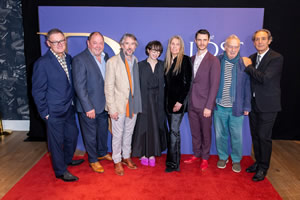
UK and European Premiere: 26 September 2022

Sally Hawkins, star, The Lost King

Steve Coogan, star and co-writer, The Lost King
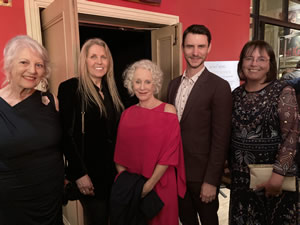
Annette Carson, Philippa Langley, Philippa Gregory and Amanda Geary with Harry Lloyd


Sir Stephen Frears at the king’s grave: Visitor Centre, Leicester

Harry Lloyd with Philippa Langley at the Wallace Collection, London

The Lost King wins Historia Prize 2023 – (13 November 2023)
On 13 November The Lost King film received the 2023 Historia prize in Paris. The prize is organised by the reference History magazine Historia and it has been running since 2010. It rewards 12 titles (film, novel, documentary, exhibition) that best represent the historical discipline.
The organisers said ‘THE LOST KING was praised by the jury for its mastery of the story of Philippa Langley's search of Richard III’s remains, its English-language poetry and its touching tribute to Great Britain.’
With heartfelt congratulations to all the team.

Pathé and The Lost King film accepting the Historia Prize 2023 in Paris.
Nominations:
Sally Hawkins – Scottish BAFTA Nomination (11 October 2023)
Many, many congratulations to the incredibly talented Sally Hawkins for her Scottish BAFTA Award nomination. Nomination is for Sally's leading role as Philippa Langley in The Lost King film (dir. Sir Stephen Frears). With love and heartfelt congratulations.
Sally Hawkins – Best Lead Performance Nominee (4 November 2022)
Congratulations to the extraordinary Sally Hawkins for her nomination for Best Lead Performance in The Lost King by the British Independent Film Awards (BIFA) 2022. With Sally’s performance described as ‘Oscar-worthy’ (see above) it’s incredibly exciting and inspirational to see this leading actor receive this recognition.
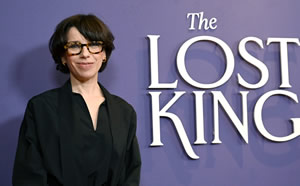

Gone Medieval:
From Gone Medieval: ‘In recent weeks, cinema audiences have been enjoying The Lost King, which tells the story of the efforts of amateur historian Philippa Langley to find the remains of Richard III - lost for more than 500 years - beneath a social services car park in Leicester.
In this episode of Gone Medieval, Matt Lewis meets Philippa to hear the story of this amazing discovery.’ You can listen to Philippa’s story here.
‘This episode was edited and produced by Elena Guthrie and Rob Weinberg.’
With thanks to Matt Lewis and the Gone Medieval team.

The Lost King FAQs:
Much has been written about the dramatisation of Philippa’s story in the film, The Lost King. Yet a significant portion of this story has not received sufficient scrutiny, nor attracted media interest. It is not known why. A number of Philippa’s interviews, in which she told her story, were neither broadcast nor published by the BBC and certain other media outlets. As a result, Philippa and her Looking For Richard Project team wish to correct the position by answering the following FAQs.
A statement from Philippa Langley and the Looking For Richard Project team:
The filmmakers worked with Philippa for eight years to research and develop The Lost King. Though dramatised, the film is Philippa’s story, the entirety of which is fully documented in original materials and eye witness testimony, including statements from two TV factual special documentary film crews who witnessed the dig and reburial period.
It has been deeply distressing and concerning for Philippa to see herself (and her original research project) attacked both online and in print. It is hoped that in future any media outlet or broadcaster who wishes to publish anything concerning this matter will ensure that this record is given proper weight.
FAQs:
Q. It has been claimed that The Lost King is a ‘fictionalised’ account of Philippa’s story. Is this correct?
A. This is incorrect. Far from being a ‘fictionalised’ account, The Lost King film is a dramatised version of real events (as below). Also see: Bookshelf and The King in the Car Park.
The true-life story of Philippa’s Looking For Richard Project, and the problems it faced, was known to many from its inception in 2009 until the king’s reinterment in March 2015. Her initiation of the project, her work and that of her fellow team members were public knowledge for years before, and following, the discovery of Richard III, as were her fundraising efforts to cover the cost of the excavation. Likewise, the difficulties encountered by Philippa and the fellow members of her team when dealing with Leicester University have not been ‘invented’ by the makers of The Lost King in order to spice up their screenplay. The film simply dramatises the real-life struggles faced by Philippa and her team. Indeed, the problems encountered by Dr John Ashdown-Hill in particular, as he fought to be recognised for his ground-breaking discovery of the king’s Mitochondrial DNA sequence, have already been fully recounted in his book The Mythology of Richard III (2015). To accuse The Lost King of ‘fictionalising’ the way Richard III’s remains were discovered and mtDNA identification made possible is to ignore facts already in the public domain, and overlooks the fact that the attitudes represented in the narrative were already known to Ricardians, and to those personally involved, as early as 2011, and can be fully corroborated by eye witness testimony. Quite simply, the problems were not ‘invented’ for the purposes of a screenplay, they were one of the reasons the screenplay was written.
Q. Leicester University has stated that it pledged the first major payment for the excavation. Is this correct?
A. This is untrue. Leicestershire Promotions was the first party to offer to 100% finance Philippa’s 2-week dig. This funding was secured by Philippa in July 2011. When this funding fell through, Dr Phil Stone, Chairman of the Richard III Society, was the first party to pledge a major payment (£5,000). For more on the financing of Philippa’s dig, see here.
Q. Leicester University has stated that it underwrote the dig, including covering the cost of expert academics’ time and the use of equipment. Is this correct?
A. This is misleading. Philippa, as the paying client, commissioned the University of Leicester Archaeological Services unit (ULAS) to excavate the site. Leicester City Council, the landowner and Philippa’s Lead Partner in the search for the king, underwrote her 2-week dig with a £5,000 contingency.
Q. Leicester University has stated that upon their underwriting of the dig, the City Council and others also joined in. Is this correct?
A. This reverses the sequence of events. The University initiated nothing. Philippa was the driving force in persuading both Leicestershire Promotions, the members of the Richard III Society and the University (and others) to co-finance her dig.
Q. Leicester University has stated that ‘Philippa Langley showed great tenacity and determination to also crowdsource funding from the Richard III Society to contribute to the fund required for the initial exploratory dig.’ Is this correct?
A. This is misleading. What the University refers to as the ‘initial exploratory dig’ was in fact the dig that revealed the skeletal remains of Richard III. The University put up only £10,000 of the cost of Philippa’s 2-week dig – less than 30% of the £32,800 budget required. Philippa raised the rest of the funding, with the majority (£17,300) coming from her crowd-funding appeal to fellow members of the Richard III Society. Only after the discovery of the choir of the Greyfriars Church and commencement of exhumation of remains did the University ‘open its wallet’ (their words) and take over the dig. This was for one extra week.
Q. Leicester University has stated that it ‘paid for the majority of the excavation and the entirety of the post-excavation costs. The University has financial records to back this up.’ Is this correct?
A. This is misleading (see above). The Lost King film is about Philippa’s discovery of the king – not the post discovery excavation of the rest of the site or the DNA analysis of the bones. The University has, for whatever reason, deliberately conflated its minority financial input up to and including the exhumation (see here for the financing) with their role afterwards (excavating the rest of the site for a further week for their own purposes, and performing the DNA analysis), thereby minimising Philippa’s pivotal role.
Q. Leicester University has stated that: ‘We appreciate that while The Lost King is based on real events, it is a work of fiction, and recollections will vary from various people of what happened during such an incredibly exciting moment in history. It is our view that the portrayal of the University of Leicester’s role in the project is far removed from the accurate work that took place. We worked closely with Philippa Langley throughout the project, and she was not sidelined by the University. Indeed, she formed part of the team interview panel for every single press conference connected to the King.’
A. This is not Philippa’s recollection of her treatment by the University at the time, nor is it her experience of dealing with it now. At the time, she wrote repeatedly to the University about their erroneous claims to have led the search. They continually ignored her or dismissed her. The only press conference which actually mattered took place on 4 February 2013 to announce the results of the DNA analysis which was attended by the world’s media. She was not invited by the University to sit on the panel that faced the world’s journalists (she was seated in the audience). The University wrongly presented itself as leading the search. It is true they invited Philippa to address the conference but as the 13th of 13 speakers, long after the live TV news feed had ended. See images right showing the order of speakers who addressed the press conference on 4 February 2013, and its panel. The University then published a recording of the press conference on its YouTube channel, the recording ended long before Philippa spoke. After The Lost King film was released the University published a second version of the press conference, which included Philippa's contribution. The University must have had access to this recording since 2012 but chose not to make it public until 2022.
Q. Leicester University has stated that ‘the suggested whereabouts of the King’s remains was public knowledge prior to Philippa’s intervention, however, we recognise she was the positive driving force behind the decision to dig for Richard III.’ Is this correct?
A. This is not true. The general whereabouts of the extensive Greyfriars precinct – where some (not all) historians believed Richard III might be buried - was known, but no one knew the layout of its destroyed architecture. Philippa and her team had determined that the king still lay in the Greyfriars Church, but the archaeologists, with many others, believed searching for the church to be futile because so much had been built over. The University further omits to mention that there was a far wider ‘public knowledge’ that believed the king’s remains had been consigned to the river Soar – a myth cited by its own representatives in writing. These obstacles were held out by many to be insurmountable. Except Philippa – she stood on a precise spot in the northern end of the Social Services car park and intuitively identified where his remains would be found. And she was right. This was supported by her research (see here). Within a matter of hours of starting to dig, the leg bones of Richard III were revealed. Even then the University dismissed the find as probably the bones of an old friar. Only Philippa insisted they were the bones of the king and paid extra money to Richard Buckley to fully excavate the skeleton. She was, again, right. Richard Buckley himself said at a presentation in York that he couldn’t believe the king was exactly where Philippa had told them to dig. For further information regarding Philippa’s instruction to exhume the remains in Trench One, see here and the original film footage of the leg bone discovery, here. If the University (and everyone else) knew exactly where to dig, why hadn’t they done so before? Moreover, why didn’t they take the opportunity to fully fund Philippa’s search and why did the University include the erroneous story of the ‘bones in the river’ in the application for the exhumation licence? The licence application was submitted 3 days before the remains in Trench One were exhumed.
Q. Leicester University has stated that ‘The University made an offer to The Lost King production team, in good faith, to help it establish the correct factual basis of the project that discovered and identified Richard III. This offer was not taken up.’ Is this correct?
A. This is not true. The film team interviewed members of the university, including Richard Buckley and Jo Appleby. They also spent 8 years corroborating Philippa’s version of events. The University wrote to the filmmakers at length in May 2019, setting out their version of their role in the discovery of Richard III. Where their version conflicted with the evidence the filmmakers held, the filmmakers took their own decision on what should prevail.
Q. Leicester University has stated: ‘We also understand that the film’s production team took no steps to establish the factual basis with Richard Taylor, the University’s then-Deputy Registrar, who helped oversee and coordinate the project. We understand the portrayal of Richard Taylor in the film does not in any way resemble the reality during this period, whilst an employee of the University of Leicester. Our records point to a colleague engaging constructively, collegiately, fairly and professionally throughout the project.’ Is this correct?
A. Philippa’s experience of Richard Taylor differs from that of the University. It is supported by original materials and eye witness testimony. This has been presented to Mr Taylor.
Q. Leicester University has stated: ‘Richard Taylor’s last date of employment at the University was 15 September 2013, and any portrayal of his involvement after this point with the project’s arrangements (for example the decisions regarding the re-interment) simply cannot be accurate.’ Is this correct?
A. This is incorrect. Richard Taylor was involved in discussions about the reinterment. On 11 September 2013, prior to his departure, Philippa discussed with him her demand for the tomb design to incorporate the Royal Coat of Arms and for the king's remains to be taken to a Catholic Place of Sanctity prior to their reburial in the Anglican cathedral. Here they would be coffined in accordance with her agreement, clause 5.7. That conversation was witnessed by a documentary filmmaker.
Q. Leicester University has described The Lost King film as sexist because it doesn’t portray the roles of 3 female academics who were involved in the identification of the king’s remains.
A. This is misleading and untrue. The Lost King film is about Philippa’s discovery of the king. As a result it does not extend its time-frame to the identification process, which occurred later. Specialists of both sexes were involved in the identification of the king’s remains as evidenced by the Channel 4 TV documentary, Richard III: The King in the Car Park (2013). However, as the male specialists were not part of the University team, the University has chosen not to mention them; thereby giving the impression that those academics involved in the identification of the remains were all female. The accusation of ‘sexism’ was therefore levelled at The Lost King in order to denigrate the film, and help promote the university. For Philippa’s interview on Radio 4’s Women’s Hour on 4 October 2022 listen here.
Q. Following the discovery of the king it has since been reported that the skeletal remains in Trench One were known to be in the choir of the church prior to exhumation. Is this correct?
A. This is incorrect. At the time of the excavation, the University believed the remains found in Trench One lay too far west, and for that reason could not be located in the choir. As a result, they assumed the bones to be those of a friar interred in the nave of the church. Philippa did not agree with this hypothesis and, as the client, she therefore instructed, and paid for, exhumation of these remains. However, following exhumation, the University asked archaeologist Tony Gnanaratnum to investigate the northern end of Trench One to search for evidence as to whether this area lay within the choir of the church. Tony discovered floor tiles and other evidence that the choir did indeed lie in this location.
Q. A third party not involved with the dig has since reported that the Richard III Society’s total contribution to the dig and reburial was about £20,000. Is this correct?
A. This is incorrect. The Richard III Society funded the original Desk Based Assessment (DBA) at a cost of £1,140, and Society members individually helped fund £2,750 of the £5,043 Ground Penetrating Radar (GPR) survey, as well as a further £18,083 towards the cost of Philippa’s 2-week dig. Society member Dr John Ashdown-Hill self-funded his discovery of the king’s Mitochondrial DNA, at an approximate cost of £3,000. Research and travel by other members of the LFRP team was also self-funded. The Society officially commissioned the facial reconstruction of the king at £7,000 from Society funds. In addition, it contributed £46,000 towards the reburial of the king (this figure does not include separate individual member donations made directly to the cathedral). The Society also funded the insertion of accurate historical quotations on the stairwell at Leicester’s Richard III Visitor Centre at a cost of £1,744, and paid £1,000 towards a digital copy of King Richard’s Book of Hours, on display in the cathedral. Philippa Langley’s costs from 2010-2012 (including research and development, travel, accommodation, rights and permissions) came to a total of £9,344.67. The total funding by the Richard III Society and its members towards the retrieval of Richard III’s remains and his reburial was £90,061. Estimates calculated from separate Society member donations from around the world to the cathedral fund suggest the Society as a whole contributed a total figure of £95,000-£110,000.
Please note this figure does not include payment by the Society of £30,000+ for a number of events in Leicester during the reburial week, including a royal performance of The Middleham Requiem. This greatly enhanced the week and benefited the local economy.
Q. A third party not involved with the dig has since reported that Philippa wore a University promotional T shirt whilst watching her 2-week dig take place. Is this correct?
A. This is incorrect. There are numerous images available showing what Philippa wore at the dig. Philippa joined in with the team to wear a T shirt in honour of Richard III during an open day at the dig on Saturday 8 September, following the recovery of the king’s remains. It was a goodwill gesture to promote the dig (and king) and the only time Philippa wore a garment promoting the University. The promotional materials for the Council’s open day (following discovery) were provided by the university’s PR department.
Q. It has recently been pointed out that in her book The King’s Grave: The Search For Richard III (2013), Philippa made no mention of any difficulties encountered when dealing with the University, and that the institution is fully applauded in the acknowledgements. This has been held up as proof that no such difficulties existed at the time of the dig, and that the problems portrayed in The Lost King were invented later for the purposes of the film’s narrative. Is this insinuation true?
A. This is not true. Primarily, it needs to be understood that The King’s Grave was written and published at a time when King Richard’s remains were under the full control of the University. During that time, the remains were being subjected to scientific study (post identification), something the Looking For Richard Project had always strongly opposed and concern was felt that any open criticism of the university at that time may jeopardise the Looking For Richard Project team’s attempts to have the king’s remains treated in accordance with the pre-dig agreements entered into in 2011/12 which followed the advice of the Commonwealth War Graves Commission.
We would also like it known that Philippa entered into all of her agreements in Leicester in good faith.
Philippa's agreements are available here. They have have also been published in Finding Richard III: The Official Account, see: Bookshelf.
On 23 June 2023, Leicester University included the following statement in a full-page advertorial in the Leicester Mercury. The statement was made by the university's Pro Vice-Chancellor, Professor Philip Baker:
"We were involved with the successful unearthing, identification and reinternment of Richard III and now we're leading the Dickens Code project to decipher the author's shorthand texts."
The Looking For Richard Project team would like to thank the university for this clarification of their role. Statement available here.
The Looking For Richard Project FAQs are available here.
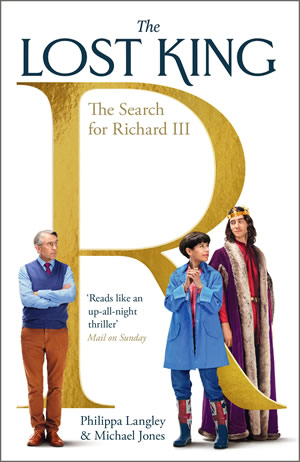
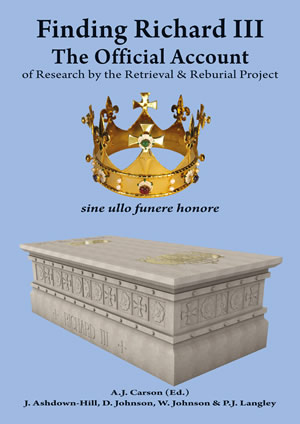

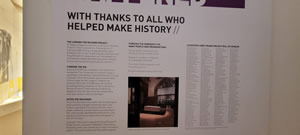
Funding the Dig and After the Discovery, Visitor Centre, Leicester

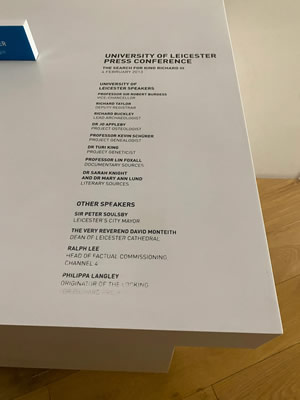
Speakers, 4 February 2013, Visitor Centre, Leicester
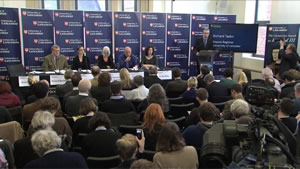
Conference: 4 February 2013, Leicester University

Sally Hawkins and Steve Coogan in The Lost King

Sir Stephen Frears (dir.) on the set of The Lost King
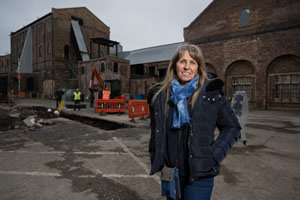
Philippa Langley on set

Tobias Capwell, Dominic Sewell, Philippa Langley and King Richard’s Knights on set

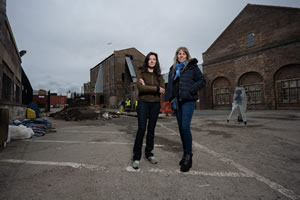
Christine Langan (producer) and Philippa Langley on set
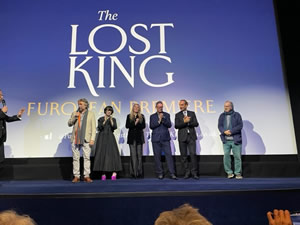
European Premiere of The Lost King film

Sir Stephen Frears (dir.), New Street, Leicester

Richard III T-shirts, 8 September 2012
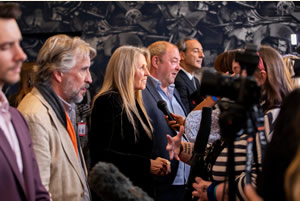
European Premiere of The Lost King: 26 September 2022
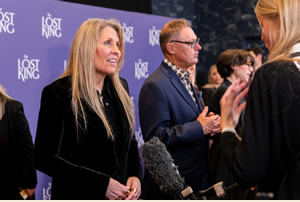
Jeff Pope (co-writer with Steve Coogan)
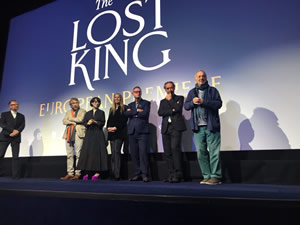
European Premiere of The Lost King film
Philippa Langley and the Looking For Richard Project Statement (27 October 2025) - Pathé Court Case / The Lost King
A statement has been issued by Philippa Langley and the Looking For Richard Project regarding the recent out-of-court settlement between Mr Richard Taylor and the makers of the film The Lost King. Had she not suffered a severe relapse into ill-health, Philippa would have been the principal witness for the defence, and over the last 18 months had prepared a detailed and extensive witness statement from her records and retained evidence. She is deeply distressed that her breakdown in health prevented this opportunity for her to attend in person for the cross-examination she had long wished to respond to. The LFR team, as well as Philippa’s family, other friends and colleagues, are heartfelt in wishing her a full recovery.
"It is with deep regret that due to ill health I was unable to proceed with being a witness for the defence in the court case for The Lost King film.
A relapse of my ME / Chronic Fatigue Syndrome (CFS) has made it impossible for me to continue and I have been advised to cancel all events and travel for the foreseeable future.
I am disappointed that I have been unable to proceed as I would have liked the judge to hear my evidence and independently come to a decision in this matter.
Myself and significant others from the search for Richard III, including the other team members of the Looking For Richard Project, were ready to help support the defendants.
It has been the most significant honour to have my story told by Pathe, Baby Cow and Steve Coogan and I cannot thank them enough."
Philippa Langley MBE
You can also view Philippa's statement here.

Pathé, Baby Cow and Steve Coogan Statement (27 October 2025) - Pathé Court Case / The Lost King
"As a distributor and producer recognised for bringing complex, real-life stories to audiences, we are deeply aware of the responsibility that comes with such portrayals and approach each project with care, integrity, and a commitment to authenticity.
"We remain incredibly proud of this film and are pleased this matter has now been settled."
A further statement issued by Mr Coogan:
“Further to Philippa’s own statement, it is unfortunate that due to her ill health we were unable to put evidence before the court so that the judge could independently come to a decision on the matter which I would have preferred.
“Philippa Langley instigated the search for Richard III. Philippa Langley insisted on the dig in the Northern area of the social services carpark where the remains were found. Philippa Langley raised the majority of the money for his exhumation – if it wasn’t for Philippa Langley, Richard III would still be lying under a carpark in Leicester. It is her name that will be remembered in relation to the discovery of the lost king, long after Richard Taylor has faded into obscurity.
"As already stated, the only changes to the film will be a front card which will follow the existing card which says that the film is a true story - PHILIPPA LANGLEY'S STORY. That is the story I wanted to tell, and I am happy I did it.
"I won’t be commenting further at this stage as I consult with lawyers on the inflammatory comments made by Richard Taylor about me personally.”

Steve Coogan Statement Piece (Guardian Newspaper, 29 October 2025) - Pathé Court Case / The Lost King
I won’t apologise for The Lost King – Leicester University’s treatment of Philippa Langley is a profound injustice
Steve Coogan
I was sued over my film that gave a voice to the committed ‘amateur’ whose pivotal role in the search for the remains of Richard III was drowned out by louder voices in academia
About 15 years ago, Philippa Langley set out on a mission to find the remains of King Richard III, the last Plantagenet king of England. Almost everyone regarded this as an impossible task. His remains had gone undiscovered for more than 500 years. It was a folly, a fool’s errand. She was out of her depth, an amateur. No letters after her name.
But Philippa diligently did the work and did her research. She had an inner conviction that she would find him, and she did. It was a staggering achievement, and yet when the news broke of this startling discovery, and it was beamed round the world, there was little to no mention of her.
I saw the Channel 4 documentary The King in the Car Park, which featured this woman I hadn’t even heard of. She was a little eccentric, odd even, and obsessive in her quest to find Richard’s remains. There was a disconnect between what I was seeing on screen and the headlines I’d read months before.
I contacted her representatives and arranged to meet her for lunch. Her health was frail, and there was a vulnerability to her. The more Jeff Pope and I researched the whole saga, the more convinced we were by her absolute integrity.
We set about writing a screenplay to tell the story of her journey from Edinburgh to Leicester and the archaeological discovery of the century. A story which, it appeared to us, had been subsumed by bigger, louder voices.
The resultant film, The Lost King, is one of which I’m immensely proud. It handed the megaphone to a woman whose story was largely unknown.
In our film, Richard Buckley, the head archaeologist, is depicted as a champion of Philippa, but ultimately with feet of clay.
Her ex-husband John Langley, whom I played, is seen as loyal, but sometimes impatient with Philippa’s obsessiveness. And then there’s Richard Taylor, the former deputy registrar at the University of Leicester.
We depict Philippa as imperfect and sometimes challenging. Ultimately, she is both ordinary and extraordinary. She also suffers from ME (myalgic encephalomyelitis or chronic fatigue syndrome), something she is open about and is shown in the film. Philippa’s ME and ongoing concomitant health issues meant that she was unable to testify at the impending civil trial to establish whether the film depicted Richard Taylor unfairly.
I was looking forward to our day in court together, a chance for a judge to look at all the evidence and come to a fair conclusion. But Philippa’s absence meant we had lost our star witness and would have gone to trial with one hand tied behind our backs. No one wants to pressurise a woman who is unwell into doing something which could well make matters worse. Sometimes you have to fall on the sword.
Consequently, we had to settle. Richard Taylor wanted to have the film altered or withdrawn. He didn’t get that. I’m pleased to say not one frame of the film has changed bar a clarification in the pre-title sequence. This card states that the Richard Taylor in the film is fictional and bears no relation to the Richard Taylor in reality who, as the card says, “always behaved with integrity”.
I noticed the University of Leicester’s website carries Richard Taylor’s statement in full, but not any of my statements. I’m sure that’s just an oversight. Philippa initiated the search for Richard III. Philippa determined the precise location in the northern area of the social services car park. When funding was withdrawn and the dig was in peril, Philippa raised the funds to ensure the project survived. When leg bones were exposed in the trench, it was Philippa who insisted that they be excavated. It revealed curvature to the spine and injuries to the head consistent with historical accounts of injuries incurred by Richard III at the Battle of Bosworth. In other words, it was him.
Richard Taylor said subsequently in a podcast that he had to create a firewall between the university and Philippa. For that, I give him full marks. At the press conference to announce that the remains discovered were those of the king, Philippa was the 13th to speak out of 13 speakers.
One thing is for sure, had Philippa been on the payroll of the University of Leicester, you can bet your bottom dollar that she would have been front and centre of all the university’s announcements. Not Richard Taylor. But as the University of Leicester liked to remind us yesterday: “She is an amateur”. Let's face it, it’s always awkward when the amateur finds the remains of a 500-year-old dead king on your doorstep.
Richard Taylor has suggested that there should be an inquiry. I would welcome any inquiry which affords the opportunity to look in detail at his and the University of Leicester’s behaviour during that tumultuous period.
In the meantime, I’ll happily debate with Richard Taylor in a public forum on all the issues surrounding this saga. Our intention with The Lost King was only ever to give a voice to Philippa and her crowning achievement. That is something to celebrate.
Richard Taylor is right about this having been a David and Goliath fight, except in our version, he and the University of Leicester are the Goliath, and the David is Philippa.
The Lost King is available for all to see. I’m sure people will watch it and draw their own conclusions.
The PDF of Mr Coogan's statement article in The Guardian is available here and here.
The full page print version, published on Friday 31 October, is available here.

Philippa Langley Statement, Sunday Times (23 November 2025) - Pathé Court Case / The Lost King
In support of Steve Coogan and the filmmakers, a further statement has been issued by Philippa Langley regarding the recent out-of-court settlement between Mr Richard Taylor and The Lost King movie. Philippa's statement was published in the Sunday Times newspaper. You can read Philippa's statement in the newspaper here, or in PDF here. For further information, please visit The Lost King film FAQs from the Looking For Richard Project team here. For Philippa's earlier statement with the Looking For Richard Project team, please see below. Thank you.

